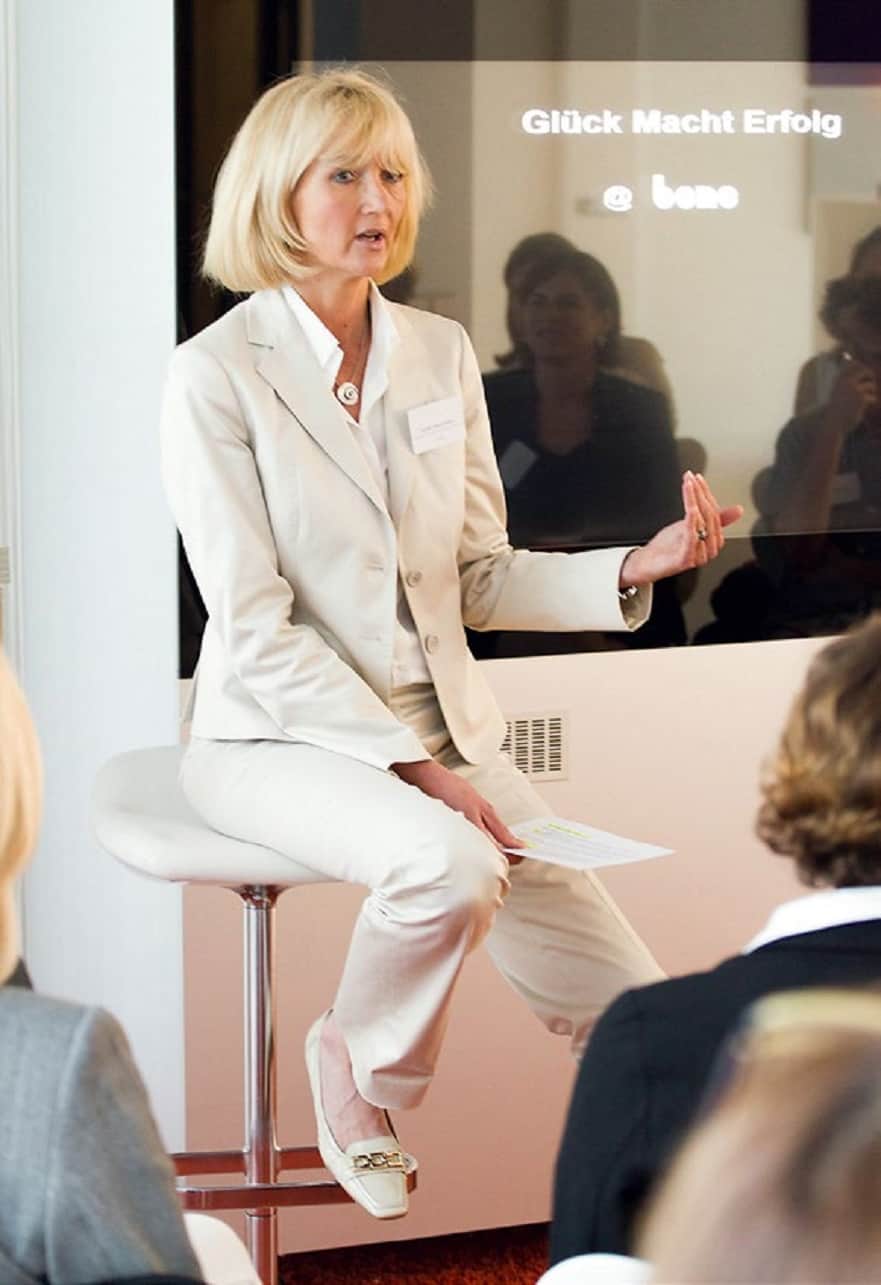Employees who think about it
For decades, growth at almost any price was the measure of all things. Now the economics of happiness has begun to investigate the seemingly unscientific connection between the economy and happiness. Thus begins the blurb for the book "Glück Macht Erfolg" (Happiness Makes Success), which investigates the economic factor "happiness".

Ehe number makes you sit up and take notice. "The economic factor happiness is a hard-hitting financial topic", writes Dorette Segschneider in her book "Glück Macht Erfolg "*. This is not only proven by the chairs for happiness economics at numerous German and international universities, "but it becomes clear first and foremost in a shocking figure from the Hamburg Institute of International Economics (HWWI): 364 billion euros are lost to the German economy every year because people are unhappy at their jobs".
Unhappy employees cost money
Happy employees as a guarantee for success? Let's leave the considerable sum - it corresponds to approx. 16% of the real gross domestic product of 2010 - aside and focus on the phenomenon behind it. And everyone knows this. A person who is unhappy sinks into this feeling. An unhappy person hardly notices what is happening around him, he is no longer interested in it and it no longer reaches him. If work is done on the basis of this feeling, it will indeed be an expensive affair for the company. And with a view to their future, also an explosive one.
Workforces that are unhappy at work are not only listlessly unfocused, which customers are increasingly noticing everywhere. Just as important, if not more so, given the constantly increasing pace of innovation, is the fact that they don't give a damn about what's going on outside, where the wind of change is blowing from and to, what the competition is up to, what prospective customers and clients want, where complaints are piling up, whether complaints are being handled properly and professionally.
Happiness as an economic factor
"Thanks to this internal blindness, the company lacks all the small observations "from below" that are sensibly needed to practically underpin the theoretical considerations of business policy and strategy. This means that a company is by no means blind to developments, weak points and problem areas, but it is very much one-eyed and more prone to reaction. Sensitivity to the current and the future that is strong enough to take action is dependent on support from the breadth of the company, on employees who think about things and on superiors who appreciate this.
From this perspective, the happiness of the workforce proves to be an economic factor that must undoubtedly be taken seriously.
The happiness of the workforce is a serious economic factor.
And, negligently ignored, as the often misjudged actual origin of loss of reputation, delayed necessary adjustments, ill-considered hasty reactions to omissions and - collapses in earnings. Seen in this light, corporate image, value and earnings are also a matter of "luck". After all, it is this perception that decisively controls the behavioural patterns that provide a company with many advantages, both in the routine of day-to-day doing and letting things be done and - and here in particular - in the powerful ability to keep up with the dynamics of change. And so the ignorance in this respect about the scratches on the reputation, the lagging operational innovation behaviour, the resulting hasty desire to catch up with what has fallen by the wayside and critical discrepancies between expenditure and results pushes the company's image, value and earnings downwards.
Points of concern
So what needs to be considered is: employees who care,
- do not automatically resort to a customary or apparently obvious solution, but rather think of customer- or problem-specific solutions that are out of the ordinary and consider appropriate alternatives.
- are curious, pay attention to and keep an eye out for innovations, include the unconventional in the work process in their considerations, strive to try it out and evaluate the result. They are not afraid of trying, of experimenting and of the failures that may come with it, which they do not frustrate but register as further experiences.
- do not leave it at the first thought, but think thoughts further. As Einstein once put it: In creatively open-minded people, every thought triggers new considerations and thus becomes a chain of associations.
- think originally in new ways, contexts and modes of action. In doing so, they are aware that innovation is not exclusively the leap into the fundamentally unprecedented. Innovating is no less the use and application of what already exists in a new way, in other areas and contexts.
- do not get caught up in the conventional ways of looking at things and thinking. They are able to see circumstances of all kinds in a new light and from a different perspective. This makes it easier for them to grasp the essence of a thought, a constellation or a problem, to draw conclusions from it and to apply the gain in knowledge in other ways.
- are not exhausted by bubbling up ideas in brainstorming style. They can concretize, elaborate and refine their spontaneous inspirations and "flashes of inspiration" and help to transform them into operationally usable ideas.
- know that people also have moods and tempers, that they have good days and few good days - superiors as well as colleagues and of course they themselves. The resulting indulgence and the experience-based certainty that the next day can and will usually have a completely different "weather situation" in this respect make them basically relaxed, pleasant contemporaries who do not present themselves as a permanent match for the friction surface that appears in the behaviour of others.
He who takes must also be prepared to give.
- are last but not least self-optimizers. Perhaps the most striking characteristic of employees who think about themselves is their willingness not only to take an unagitated, unbiased and unprejudiced look at their surroundings and what is going on, but also to work on themselves and on their own initiative. And with this quality they contribute noticeably to the atmospheric brightening of the company as well as to the expansion and perfection of the resources available to the company.
A give and take
The latter is perhaps the greatest gift an employee can give his employer in this day and age: Not to get bogged down in themselves, not to "shut down," not to shirk their share of the responsibility, and not to just let the store run. However, what must not be forgotten in this context by employers: Those who take, should, must also be prepared to give. For companies seeking happiness, reciprocal altruism should therefore not be a closed book.









